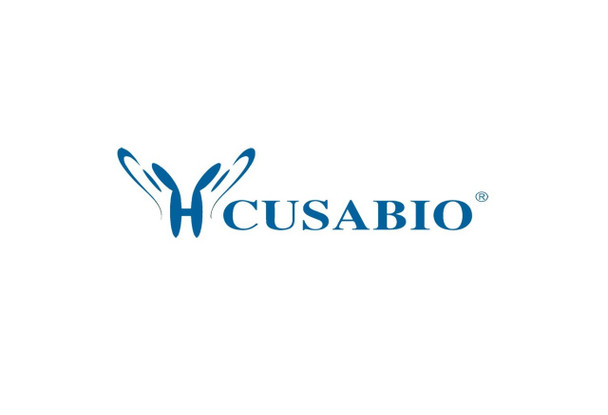Cusabio Human Recombinants
Recombinant Human Iron-sulfur cluster assembly enzyme ISCU, mitochondrial (ISCU) | CSB-EP887955HU(A4)
- SKU:
- CSB-EP887955HU(A4)
- Availability:
- 13 - 23 Working Days
Description
Recombinant Human Iron-sulfur cluster assembly enzyme ISCU, mitochondrial (ISCU) | CSB-EP887955HU(A4) | Cusabio
Alternative Name(s): NifU-like N-terminal domain-containing protein NifU-like protein
Gene Names: ISCU
Research Areas: Signal Transduction
Organism: Homo sapiens (Human)
AA Sequence: MAAAGAFRLRRAASALLLRSPRLPARELSAPARLYHKKVVDHYENPRNVGSLDKTSKNVGTGLVGAPACGDVMKLQIQVDEKGKIVDARFKTFGCGSAIASSSLATEWVKGKTVEEALTIKNTDIAKELCLPPVKLHCSMLAEDAIKAALADYKLKQEPKKGEAEKK
Source: E.coli
Tag Info: N-terminal GST-tagged
Expression Region: 1-167aa
Sequence Info: Full Length
MW: 45.0 kDa
Purity: Greater than 90% as determined by SDS-PAGE.
Relevance: Scaffold protein for the de novo synthesis of iron-sulfur (Fe-S) clusters within mitochondria, which is required for maturation of both mitochondrial and cytoplasmic [2Fe-2S] and [4Fe-4S] proteins. First, a [2Fe-2S] cluster is transiently assembled on the scaffold protein ISCU. In a second step, the cluster is released from ISCU, transferred to a glutaredoxin GLRX5, followed by the formation of mitochondrial [2Fe-2S] proteins, the synthesis of [4Fe-4S] clusters and their target-specific insertion into the recipient apoproteins. Cluster assembly on ISCU depends on the function of the cysteine desulfurase complex NFS1-LYRM4/ISD11, which serves as the sulfur donor for cluster synthesis, the iron-binding protein frataxin as the putative iron donor, and the electron transfer chain comprised of ferredoxin reductase and ferredoxin, which receive their electrons from NADH
Reference: "Distinct iron-sulfur cluster assembly complexes exist in the cytosol and mitochondria of human cells." Tong W.-H., Rouault T. EMBO J. 19:5692-5700(2000)
Storage: The shelf life is related to many factors, storage state, buffer ingredients, storage temperature and the stability of the protein itself. Generally, the shelf life of liquid form is 6 months at -20?/-80?. The shelf life of lyophilized form is 12 months at -20?/-80?.
Notes: Repeated freezing and thawing is not recommended. Store working aliquots at 4? for up to one week.
Function: Scaffold protein for the de novo synthesis of iron-sulfur (Fe-S) clusters within mitochondria, which is required for maturation of both mitochondrial and cytoplasmic [2Fe-2S] and [4Fe-4S] proteins
Involvement in disease: Myopathy with exercise intolerance Swedish type (MEIS)
Subcellular Location: Isoform 1: Mitochondrion, SUBCELLULAR LOCATION: Isoform 2: Cytoplasm, Nucleus
Protein Families: NifU family
Tissue Specificity: Detected in heart, liver, skeletal muscle, brain, pancreas, kidney, lung and placenta.
Paythway:
Form: Liquid or Lyophilized powder
Buffer: If the delivery form is liquid, the default storage buffer is Tris/PBS-based buffer, 5%-50% glycerol. If the delivery form is lyophilized powder, the buffer before lyophilization is Tris/PBS-based buffer, 6% Trehalose, pH 8.0.
Reconstitution: We recommend that this vial be briefly centrifuged prior to opening to bring the contents to the bottom. Please reconstitute protein in deionized sterile water to a concentration of 0.1-1.0 mg/mL.We recommend to add 5-50% of glycerol (final concentration) and aliquot for long-term storage at -20?/-80?. Our default final concentration of glycerol is 50%. Customers could use it as reference.
Uniprot ID: Q9H1K1
HGNC Database Link: HGNC
UniGene Database Link: UniGene
KEGG Database Link: KEGG
STRING Database Link: STRING
OMIM Database Link: OMIM









